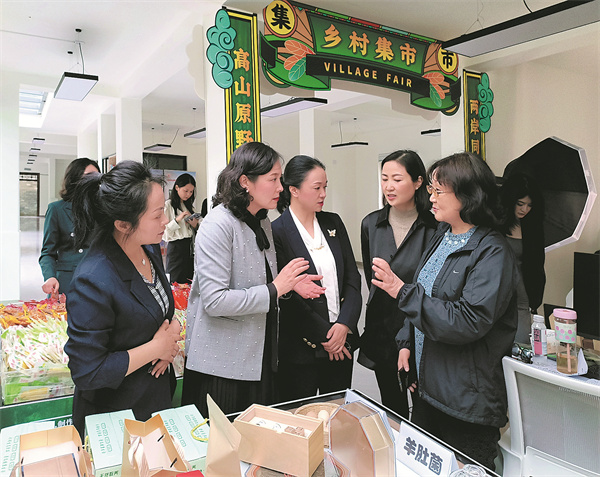

It wasn't until 30 years after her father died that Pan Yuping fulfilled his wish to be buried in his hometown, on Taiwan island.
Being born into a family with a cross-Strait background, Pan has a profound understanding of the tragedy of separation among people on the two sides of the Taiwan Strait.
Her family history and experience have increased her longing for the island's reunification with the motherland.
As a member of the National Committee of the Chinese People's Political Consultative Conference, Pan has long been focused on the Taiwan question and has provided proposals and suggestions to government departments.
She is also a member of the Taiwan Democratic Self-Government League, one of the eight non-Communist political parties on the mainland.
Despite her deep ties with Taiwan, Pan grew up in the southwestern province of Sichuan, where her mother is from. She speaks Mandarin with a Sichuan accent and enjoys spicy food such as hot pot, which Sichuan is famous for.
Her father, who grew up in Taiwan, moved to the mainland with the military in December 1946, where he served as a military doctor. After the establishment of the People's Republic of China in 1949, her father was assigned to work at a school in a remote area.
"Because of the hostile relations between the two sides of the Strait, my father was unable to return to his hometown in Taiwan," Pan said.
Her father passed away in 1980, and before his death he had expressed his wish that his ashes be sent back to Taiwan. However, because of the unique circumstances, his ashes remained at their home in Sichuan for 30 years.
During the late 1940s, many people, like her father, came from Taiwan to the mainland, for education, military service, or business. Because of the hostile cross-Strait relations, they were unable to return, remaining separated from their families for decades. Some were fortunate enough to return after cross-Strait exchanges resumed in the 1980s, but by then her father had died.